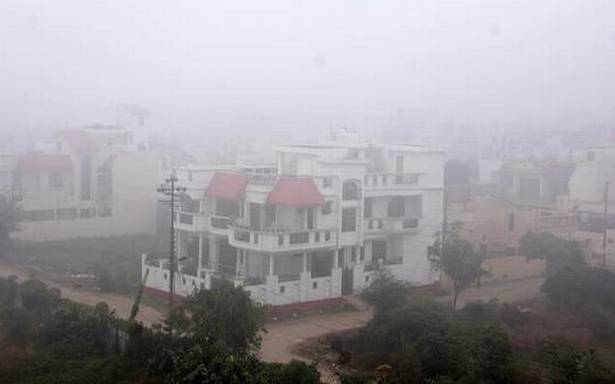87% said climate change is ‘important or very important’ in determining their choice
Ahead of the elections in Uttar Pradesh, a candidate’s position on climate change and air pollution could influence voters, suggests a survey conducted by Climate Trends and YouGov. Climate Trends is an environmental advocacy group and YouGov is a market-research firm.
Uttar Pradesh goes to polls from February 14.
Surveyors asked 1,215 residents, half of them women, from six cities in Uttar Pradesh — Meerut, Agra, Lucknow, Kanpur, Gorakhpur and Varanasi — several questions on air pollution and whether it could influence their votes. Of those polled, 87% said that climate change was “important or very important” in determining their choice.
More than 80% said they were “aware” of the impact of air pollution on climate change and its effect on the economy. 76% opined that air pollution should be addressed by political parties in the coming election. 73% attributed vehicular exhaust to be the key reason for poor air quality, and 65% said it was construction and road dust.
As India’s largest State, Uttar Pradesh is also the largest power-consuming State, accounting for 10% electricity generation in the country. The demand has been growing strong and steady in the last decade, leading to increased electricity generation from coal-fired thermal power plants, which are adding to the State’s pollution woes. Pollution from thermal plants is listed behind construction and vehicular pollution as sources of pollution in the responses of those surveyed.
In global lists of the most polluted cities in the world, those in Uttar Pradesh frequently top the list, along with Delhi, because of their geographical location and energy consumption patterns.
Shalu Agarwal, senior programme lead, Council for Energy Environment and Water (CEEW), said in a statement: “Both people and politicians should accept that electricity is a commodity, which will fuel the state’s growth and economy. Thus, it should be clearly kept away for political agendas. Political parties use subsidies to lure voters but we need to identify who should be given the subsidy, how much, why, and to what extent. We need to understand that for every subsidy, we need to arrange money and it might impact other sectors like health, education, transport and air pollution. Developing energy efficient products like roof-top solar and appliances might help.”
Ajay Nagpure, head, air quality, World Resource Institute, India, said, “A subject becomes a political agenda only when people start talking about it. While issues like high blood pressure, diabetes and smoking are widely discussed as public health concerns, very few know that poor air quality also results in a similar number of deaths. So there is a better way to communicate the health impacts of poor air quality to be able to get people concerned about it. There is still a long way to go before this awareness increases among the rural population.”
Source: Read Full Article

